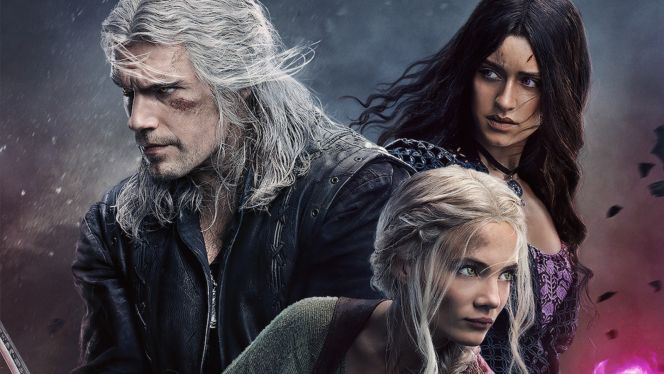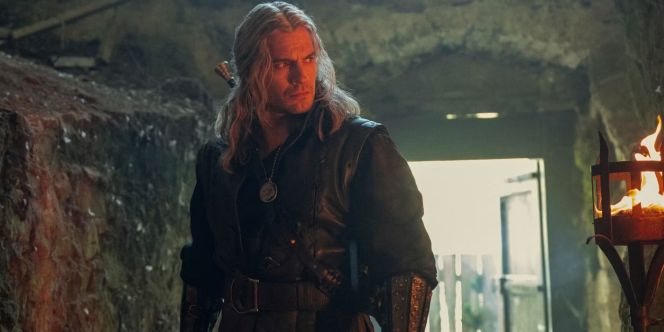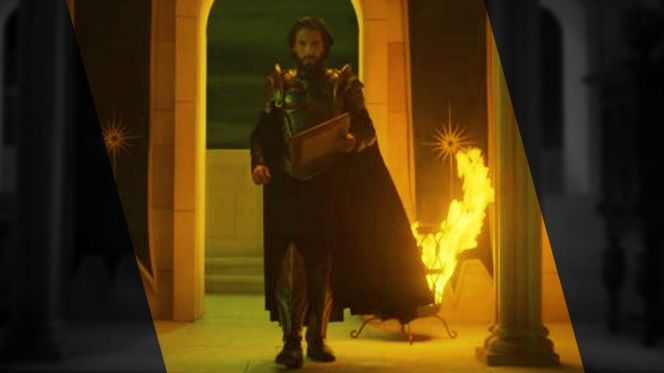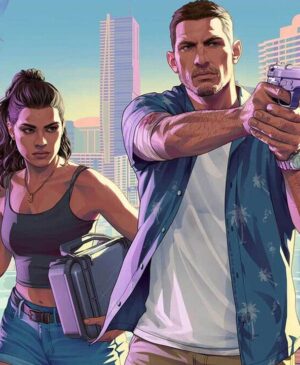TV SERIES REVIEW – The ethically complex world of Netflix’s dark fantasy series, The Witcher, is back on screen after a month-long break, with all its political turmoil and sword-fought violence that are the trademarks of the series. However, this time, the intellectual vigilance seems a bit fainter.
It’s strange to see Netflix, the homeland of binge-watching, willing to alter its established business model, and the latest season of The Witcher reflects this trend. Just as they divided the 4th season of Stranger Things into two parts last summer, they clumsily dissected the 3rd season of The Witcher into a one-sided double event. The streaming service’s decision to detach The Witcher from the typical full-season release appears calculated. Perhaps it’s a trial to see if viewers are interested in a popular series in the long run. But if so, is this a good strategy for the series? Does this move spur or rather dull the excitement for the 4th season? The answer is less complex than it might seem at first glance, similar to The Witcher’s continental political situation.
As for the previous season, when we last saw Geralt, Yennefer (Anya Chalotra), and Ciri, conflicts scattered across the continent had already peaked. Emperor Emhyr (Bart Edwards) was preparing for war against the Northern Kingdoms, the Witcher Brotherhood put aside their differences to unite against Nilfgaard, the perverse duo, Dijktsra, and Philippa (Graham McTavish and Cassie Clare) were scheming against the Aretuzan wizards, it seems to be their job, and Jaskier (Joey Batey), the witcher’s old friend, caught the attention of Prince Radovid (Hugh Skinner), the infamous brother of the king of Redania. All this ended with a decadent ball and, of course, a betrayal or two.
Heroic Farewell?
The season’s month-long break, at least, revived the conversation about the departure of the star, Henry Cavill, who announced last November that the 3rd season would be his final appearance as the Butcher of Blaviken. Since the premiere of The Witcher in 2019, the biggest draw has been watching Cavill hunt, kill monsters, and pursue Yennefer on the continent. His mission is almost over now, but according to the series’ showrunner, Lauren Hissrich, the 3rd season ultimately serves as a “heroic farewell” for Cavill. From one perspective, this is true, from another, it is not.
One thing is for sure: the final part of the episodes gets to the point almost immediately. So much so that the 6th episode – ludicrously titled “Everyone Has a Plan Until They Get Punched in the Face” – seems more like a season finale than a mid-season acceleration of events. The series is often stalled by forced, contrived political maneuvers and other boring plot-specific elements.
The details of the main conflicts may be somewhat blurry for casual viewers. Readers of the books are all too familiar with what’s happening in Aretuza, but Netflix would rather I didn’t go into details here. All I will disclose is that it all culminates in the unveiling of The Witcher’s latest big villain, moments before they are likely to commit even more horrific acts in the next season. “Hiding my real abilities, knowing I can take any life at any time; that… was disheartening,” says this villain to Geralt while they are in fierce combat. This character couldn’t have better identified the main problem with the third season…
The Best Part is the Main Villain
The best part of the third season is the cynical main antagonist. At least they provide something substantial for the series that Geralt can latch onto. The Andrzej Sapkowski novel, “Time of Contempt,” which the 3rd season more or less faithfully adapts, mainly deals with the escalating war among the various kingdoms on the continent. This means that the procedural charm of The Witcher has almost completely disappeared. Hunting monsters is gone and, except for the giant crawler that attacks Ciri (Freya Allan) in the 7th episode, supernatural beasts are nowhere to be seen. As Geralt is mostly impartial in human affairs not related to monsters – though his political neutrality will later become a sensitive issue for his character -, when he has to draw his sword on a sullen soldier or wizard, he seems more annoyed about it than anything else.
The sixth episode is full of drama, stakes, and a lot of pain, but the confrontations still feel weak, like so much in this season. It’s as if Hissrich and the team lost interest in fight choreography halfway through, and instead reverted to grumpy people talking in rooms. There are occasional interesting visual solutions, such as a melancholic shot from behind of Cavill that seems to echo a similar shot from Man of Steel. Later, for certain reasons, Ciri withdraws from the chaos, which favors her character development (there is still hope for the 4th season), and the resulting desert scenes are so beautiful that we immerse ourselves in them. (This lengthy, standalone part was filmed in Morocco).
The real price of chaos
And what about Cavill’s “heroic farewell”? In the 8th episode (titled: “The Price of Chaos”) a callback to the 1st season tries to complete his time in the series, even if it makes torturous plans for Geralt, which will have to wait for the next seasons when the White Wolf will suddenly resemble Liam Hemsworth for some reason. The Witcher’s own forced trap, the catch-22: the series plays with the source material until it decides it shouldn’t, and the development of continental politics and prophecy constantly distracts from the charismatic protagonist. It seems the creators took Cavill’s enthusiasm for the role for granted until the star eventually decided to leave. For his part, Cavill remained fully committed to the season, so much so that his impending absence is particularly painful.
Should The Witcher series follow its own path or the one designated by Sapkowski in the future? The 3rd season projects a more faithful direction to the original work, enriched with interesting characters like Radovid, so the series will undoubtedly continue its bewildering attempts to cover both directions. The future may show a different picture, but for now, viewers have three seasons of varying quality to ponder, each with its uplifting highlights, but far too many low points, and a lead actor whose natural charisma gave the series a sincere charge that can’t easily be replaced. The further adventures of the Continent are already on the way, but for some, the real price of chaos might be what they’ve invested in a series of such fluctuating quality so far.
-BadSector-
The Witcher Season 3 Episode 2
Direction - 5.2
Actors - 7.4
Story - 5.6
Visuels/Action - 7.2
Ambience - 6.4
6.4
FAIR
In conclusion, The Witcher returned with more political scheming, surprising - or intended to be surprising - twists, and a few well-choreographed battle scenes, but the month-long wait for the conclusion of the third season brought disappointment. While we have to accept the departure of lead actor Henry Cavill, and prepare for the upcoming two seasons without Cavill, the often confusing and chaotic nature of The Witcher has never been more apparent."








Leave a Reply